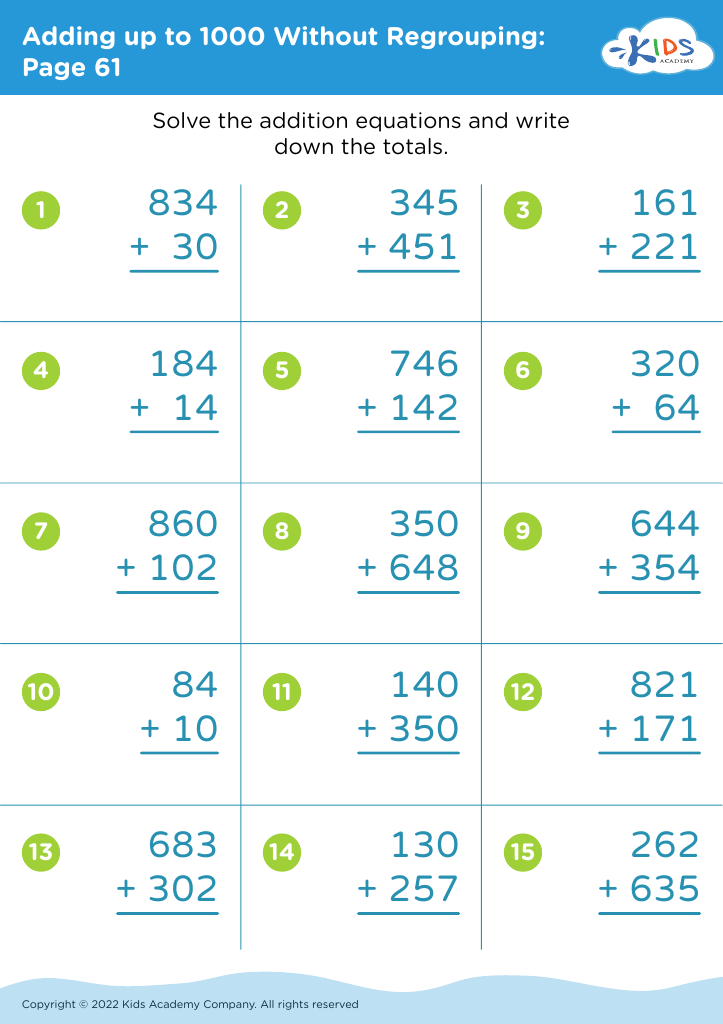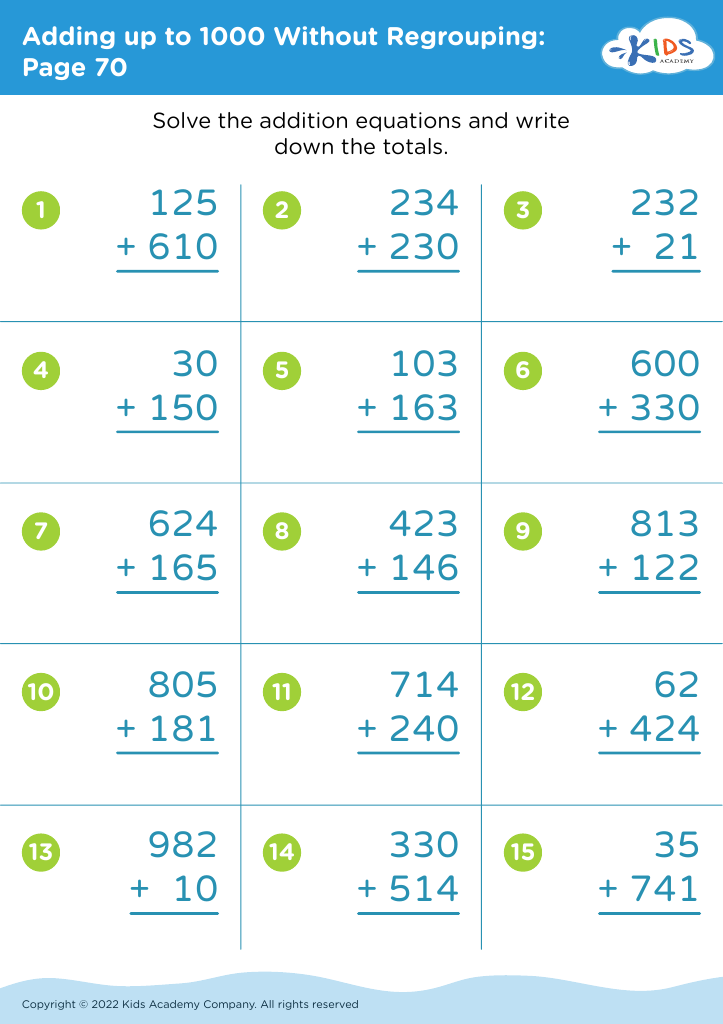Basic Addition Adding up to 1000 Without Regrouping Worksheets for Ages 3-9
4 filtered results
-
From - To
Explore our "Basic Addition Adding Up to 1000 Without Regrouping Worksheets" designed for children aged 3-9. These engaging worksheets are tailored to introduce young learners to the fundamentals of addition, promoting confidence and competence without the complexity of regrouping. Each activity encourages kids to practice their math skills using vibrant illustrations and relatable examples, making learning both fun and effective. As they progress through the exercises, they'll build a strong foundation in basic addition while developing problem-solving abilities. Perfect for both classroom and home learning, these worksheets make math an enjoyable experience for every child. Start your math journey today!
Basic addition, especially when adding up to 1000 without regrouping, is a fundamental math skill crucial for children aged 3-9. It serves as the foundation for more complex mathematical concepts and develops critical thinking and problem-solving skills. By mastering this concept, children build number sense, which enhances their ability to understand and apply mathematics in everyday situations.
Parents and teachers should prioritize basic addition for several reasons. Firstly, early mathematical skills significantly correlate with future academic success. When children grasp addition early, they are more likely to thrive in higher-level math as they progress through school. Additionally, learning addition helps foster a child's confidence and independence, empowering them to tackle mathematical challenges without overwhelming fear of failure.
Mathematics also aids in cognitive development, enabling children to think logically and gain a better understanding of patterns and relationships. For teachers, teaching this skill in engaging ways can create excitement around math, making it less daunting for students. Ultimately, strong foundational skills in addition not only prepare children for advanced topics in math but also cultivate a positive attitude towards learning, ensuring they continue to explore and develop their abilities intellectually.














